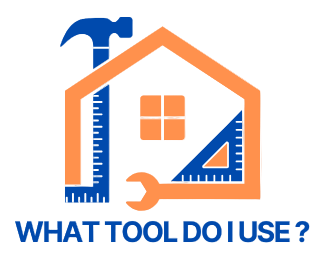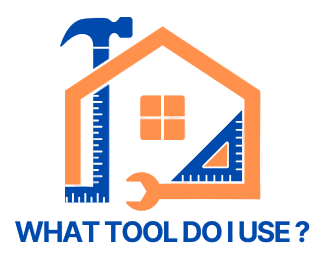Quick summary: Choosing between corded and cordless power tools isn’t about owning everything, it’s about selecting tools that suit your home, experience level, and the type of DIY you actually plan to do. This beginner-friendly UK guide explains the key differences between corded and cordless tools so you can make confident, practical choices without overspending.
For most UK home DIY beginners, cordless power tools are more convenient for general use because they are portable and easy to handle. Corded tools usually provide consistent power and are better suited to longer or heavier jobs where access to a plug socket is not an issue. The right choice depends on how often you use the tool, where you work, and the type of projects you take on.
Introduction: Why Choosing the Right Power Tools Matters
Choosing the right power tools can make a big difference to how safe, efficient, and enjoyable your DIY projects are. For many beginners, the first real decision is whether to choose corded or cordless tools.
From drilling shelves to tackling general home repairs, each option has strengths and limitations. This guide explains the practical differences between corded and cordless power tools so you can decide what makes sense for your home, your confidence level, and the way you actually work.
📖 View Table of Contents
Understanding Your Project Needs
Before buying any tool, decide why you need it. Different projects require different levels of precision, power, and control.
- Light tasks: Hanging pictures, assembling furniture
- Medium tasks: Installing shelves, repairing decking
- Heavy tasks: Building sheds, cutting wood, laying flooring
Match tool performance to the task so you avoid overspending.
Key Factors When Choosing Power Tools
Good choices are about fit and features, not just brand or price.
Corded or Cordless?
- Corded: Constant power and stronger motors, but tied to sockets
- Cordless: Portable and great outdoors, but batteries add cost and weight
Tip: For occasional indoor jobs, corded tools are excellent. For flexibility and frequent use, cordless are more mobile.
Battery Voltage
- 12V: Compact, light, best for small tasks
- 18V: The all rounder for most DIY projects
Tip: Stick to one brand’s battery system so packs are interchangeable.
Weight and Ergonomics
- Check balance, grip, and trigger comfort
- Lighter tools reduce fatigue, but may trade off power
Matching Tools to Specific Home Projects
Drill/Driver: Ideal for shelves, furniture, and general fixing.
Circular Saw: Great for timber, sheet goods, and flooring.
Jigsaw: For curves, cut outs, and shaping panels.
Orbital Sander: For smoothing surfaces and finishing between coats.
Oscillating Multi-Tool: For trimming, scraping, and tight corners.
Safety First
- Choose tools with blade guards, soft starts, and safety locks.
- Wear safety glasses, gloves, and hearing protection.
- Unplug or remove batteries before changing bits or blades.
- Store tools dry and covered to prevent rust or damage.
For beginners, it’s worth reading How Do I Stay Safe When Using Power Tools for the First Time? before getting started
Common Mistakes to Avoid
- Buying the cheapest tools: Poor quality risks safety and precision.
- Overbuying: Start small and expand as you learn.
- Skipping PPE: Always wear protection and follow the manual.
For more detail, see Common DIY Tool Safety Mistakes (and How to Avoid Them)
Tips for Long-Term DIY Success
- Start small: Build confidence with beginner projects.
- Stay organised: Use toolboxes or wall storage for easy access.
- Maintain tools: Clean after use and keep blades sharp.
🛠 Recommended tools & accessories
- RYOBI 18V ONE+ Cordless Combi Drill Starter Kit A lightweight, beginner-friendly cordless drill/driver with two batteries — ideal for everyday home DIY.
- HYCHIKA 800W Jigsaw with Laser Guide A corded jigsaw with strong, consistent cutting power — perfect example of corded reliability.
- Makita DSS611Z 18V LXT Cordless Circular Saw (Body Only) Lightweight cordless circular saw highlighting the convenience of modern lithium-ion tools.
- Makita DC18RC Charger & 5.0Ah Battery Kit Fast charger and high-capacity 18V battery — shows cordless runtime and platform benefits.
- Bosch 50-Piece X-Line Drill & Screwdriver Bit Set A high-value accessory kit that works with both corded and cordless drills — excellent beginner essential.
FAQs: Corded vs Cordless Power Tools (UK DIY)
Are cordless power tools powerful enough for home DIY?
For most home DIY tasks, cordless power tools are powerful enough. Modern 18V tools can handle jobs like drilling, driving screws, and light cutting. Heavier or prolonged work may still suit corded tools better due to continuous power.
Are corded power tools better for beginners?
Corded tools can be simpler because they don’t rely on batteries, but beginners often find cordless tools easier to handle and more convenient. The best option depends on where you work and how often you use the tool.
Do cordless power tools cost more in the long run?
Cordless tools can cost more initially because of batteries and chargers. However, sticking to one battery system can reduce costs over time, especially if you plan to add more tools later.
Which is safer for home DIY, corded or cordless tools?
Both can be safe when used correctly. Cordless tools reduce the risk of trailing cables, while corded tools provide consistent power. Safety depends more on correct use, protective equipment, and following manufacturer guidance.
Do I need both corded and cordless power tools?
Many DIYers eventually use a mix of both. Cordless tools are convenient for general jobs, while corded tools are useful for tasks that need sustained power or are done in one fixed location.
Further Reading
- Best Cordless Drills in the UK (2025 Buyer’s Guide & Comparison)
- How Do I Stay Safe When Using Power Tools for the First Time?
- How to Choose Power Tools for Home DIY Projects (Beginner’s Guide)
- What Are the Essential DIY Tools Every Beginner Should Own?
- Beginner’s Guide to DIY Tool Safety: What Every New DIYer Should Know
- How to Use a Power Drill Safely (Beginner Guide)






